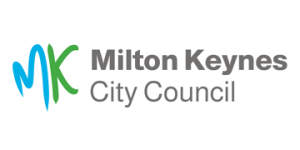EPs and the tuition initiative: a disappointing silence?

The Government has recently announced that funding will be made available for pupils to receive ‘catch up’ tuition.
Although details of how the scheme will work are not clear it has nevertheless struck me that so far, the Educational Psychology profession has been pretty silent about this initiative.
Missing voices
Given the speed with which mental health and well being were being aired and discussed by our profession after the COVID-19 lockdown, I am both surprised and disappointed that that relatively little appears to have been said or contributed about the tuition initiative, in comparison with the tsunami of opinions, resources and comment about mental health and well being.
It is quite right that we should be taking a lead on issues related to mental health and well being, especially in relation to how pupils are supported both now and when there is a full return to school. However, it puzzles me as to why we are not making just as big a noise about matters such as effective instruction.
In my (many) years in education I have seen pupils experience learning failure time and again due to ineffective instruction delivered by individuals who are generally well meaning but often untrained. I have also seen numerous examples of how schools squeeze all the enjoyment out of learning.
One of the most depressing recent examples of this occurred during a visit to a nursery on World Book day. I looked around for the book area and all I could see was a very small basket tucked away in the corner of the room, containing a small collection of ripped, dog eared and clearly unloved books. Predictably, this unappealing presentation meant that none of the pupils chose to read. What then made me more upset and horrified was that the children were herded into small groups to ‘do phonics’. So three and four year old children were already being give the message that reading is about making sounds……not about the pleasure and enjoyment of reading stories and finding out that print is the key to unlocking so many exciting things.
Effective instruction and learning
There is a wealth of research about effective instruction and learning: just two example that are probably very familiar are the importance of distributed practice (Seabrook et al) and the Learning hierarchy (Haring, Lovitt, Eaton and Hansen). Direct Instruction is a robust approach that has an evidence base going back almost 50 years (Stockard et al, 2018).
Looking specifically at reading, which will be one of the areas targeted by the tuition initiative, we also have a great deal that we can say about reading acquisition and reading difficulties, drawing on a range of theories and approaches that are rooted in psychology: the simple view of reading (Gough and Tumner, 1986), the relationship between language competence and reading (Roth et al, 1996; Blesky et al, 2005), the contribution of cognitive (thinking) skills to the process of reading (Das et al, 2000), as well as our skills and knowledge related to making sense of evidence data such as ratio gain and effect size, to name but a few. Yet it seems to me that we often stand mute at the sidelines when schools waste their time and money on programmes with no proven track record or which are delivered so infrequently that learning (and, more importantly for learners with difficulties, accelerated learning) does not occur.
One of the (many) strengths that our profession can offer is a holistic view of the child or young person. When we’re presented with a ‘case’ our formulation is wide ranging, taking account of all of those Bronfenbrenner intersecting systems (Bronfenbrenner and Morris, 2006). So if we only emphasise mental health we risk addressing just part of the picture.
Learning and mental health
Personally I don’t see the point in ‘fixing’ mental health only to then abandon the pupil to ineffective, infrequent and uninspiring tuition. This in itself is likely to be detrimental; for example, what we know about self efficacy theory (Bandura, 1994) can help us to understand the relationship between curriculum success and motivation, self esteem and self worth.
Supporting children and young people’s mental health will help to make sure that they are in a ‘good’ place to access learning. If we pay the same attention to promoting high quality tuition, then the resulting success will contribute to maintaining this emotional well being, creating a cycle of positivity, rather than a vicious circle of learning failure that feeds poor emotional well being.
My challenge is therefore to ‘dust off’ some of those theories and approaches about learning and instruction that have been shoved to the back of the EP cupboard. ‘Learning to read’ doesn’t sound as attractive and sexy as some of the raft of therapeutic approaches that seem to be aired on a forum such as EPNET, but in my opinion, unless we pay attention to learning and instruction we are doing our children and young people a great disservice. We have a voice about these matters. We should use it.
References
Bandura, A. (1994). Self Efficacy. In V.S. Ramachaudran (Ed). Encyclopaedia of Human Behavior (Vol 4). New York: Academic Press.
Blesky, J., Booth-LaForce, C. L., Bradley, R., Brownell, C., Campbell, S. B., et al. (2005). Pathways to reading: The role of oral language in the transition to reading. Developmental Psychology, 41, 428-442
Bronfenbrenner, U. and Morris, P.A. (2006). The bioecological model of human development. In R. M. Lerner & W. Damon (Eds.), Handbook of child psychology: Theoretical models of human development. Hoboken, NJ: John Wiley & Sons Inc.
Das, J. P., Parrila, R. K., & Papadopoulos, T. C. (2000). Cognitive education and reading disability. In A. Kozulin & Y. Rand (Eds.), Experience of mediated learning: An impact of Feuerstein’s theory in education and psychology. Elmsford, NY: Pergamon
Gough, P.B. & Tunmer, W.E. (1986). Decoding, reading, and reading disability. Remedial and Special Education, 7, 6-10.
Haring, N.G., Lovitt, T.C., Eaton, M.D. and Hansen, C.L. (1978). The Fourth R: Research in the classroom. Columbus, OH: Charles E Merritt Publishing Co.
Roth, F.P., Speece, D. L., Cooper, D. H. (1996). Unsolved mysteries: How do metalinguistics and narrative skills connect with early reading? Journal of Special Education, 30, 257-277
Seabrook, R. Brown, G. and Solity, J. (2005). Distributed and massed practice: from laboratory to classroom. Applied Cognitive Psychology, 19, 107-122.
Stockard, T., Ward, T.W., Coughlin, C. and Khoury, C.R. (2018). The effectiveness of direct instruction curricula: a meta analysis of a half century of research. Review of Educational Research 88 (4), 479–507





Absolutely Jane! I have been interested in Direct Instruction, instructional psychology, EBP and PBE (interpretation and implementation being key)for a while. The work of John Solity being highly influential. It also links to Response to Intervention. I think maximising instruction time is key and for me is a form of social justice. I think success in learning leads to motivation and hopefully the Matthew Effect kicks in. Knowledge of instruction design helps EPs move away from within child factors and towards curriculum design, instructional practices. ‘If you want to see the poor remain poor, generation after generation, just keep the standards low in their schools and make excuses for their academic shortcomings…but please don’t congratulate yourself on your compassion’. (Thomas Sowell).
Thanks again for the blog.
Thank you Nazam. I love the quote!
Thanks Jane for the timely blog. Interestingly Nazam, I was involved with Solity’s research as an assistant ed psych at Essex. My first post after qualifying as an ed psych was with the Dyslexia Institute (later Dyslexia Action, now no longer in existence) as an educational and research psychologist. Had the pleasure of working closely with Dr John Rack at York University and his colleagues, all involved in research around literacy acquisition. Needless to say I learnt so much from this (and Solity) and it brought home my inadequacy beforehand (even though I had initially trained as a primary school teacher through the 4 year BEd route but reading acquisition was barely given the time it deserved).
I suspect things are little better now given that there are so many different teacher training routes and so I never assume that hard working colleagues in schools actually know the nuts and bolts of developmental literacy acquisition and unfortunately I am mostly proven correct. Synthetic phonics has a lot to answer for in some respects as a focus on this has led to other equally relevant approaches and areas for consideration being neglected. I’m also astounded with the new wave of teachers who are so reliant on schemes and places like Twinkle. Misses the metacognitive and reflective process you go through when you create interventions that are bespoke. No doubt colleagues in school would say they just haven’t the time.
I wonder whether the radio silence from ed psych colleagues is because they too may need to brush up on this area of work, which is no longer ‘sexy’ and on trend but, as you and Nazam point out, so necessary for social justice. Curriculum design to ensure equity is very much our bag!